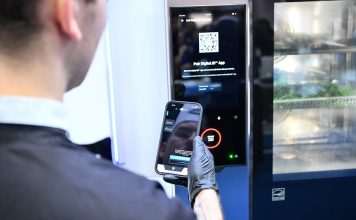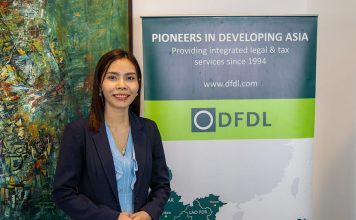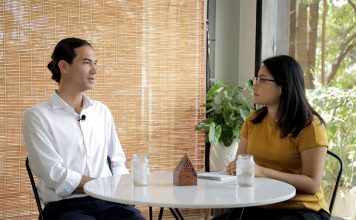Solar home systems are an appropriate solution to provide affordable, reliable and clean electricity in rural Cambodia, and the Green Microfinance Programme assists villagers to take out loans to purchase them.

In Cambodia, full electrification in rural areas is still a couple of years away. In the meantime, energy is delivered through fuel-based engines or generators to produce electricity that can be stored in batteries.
According to the Economic Research Institute for ASEAN and East Asia, in 2013 only 34 percent of Cambodian households had access to electricity, which is one of the lowest electrification rates in ASEAN. The current cost of electricity is high, ranging from $0.15 per kilowatt hour in Phnom Penh to $1.00 per kilowatt hour in rural areas. Due to the high cost of electricity in rural areas, there is an opportunity for the solar home based system.
Chhu Yay, a grocery shop owner in Ang Ropeak village in Kampot province’s Dong Tong district, has every reason to smile now. Her business has improved thanks to a solar home system, with solar panels on her rooftop.
“Before I installed the solar system, things were difficult,” Yay told Khmer Times. “My grocery store could only stay open for a limited number of hours after dusk using battery power. And I was spending large amounts of money daily recharging car batteries to provide electricity to my shop,” she added.
Last year, Yay decided to switch over to solar after a company explained to her its benefits and the firm’s installment plan for those wanting to purchase solar panels. “I decided to install solar panels on top of my roof because my village is not on the national electricity grid,” she said. “Now my grocery shop stays open till late at night and I’ve saved quite a sum of money, not having to charge batteries every day for my electricity supply.”
Upfront costs remain a barrier in promoting renewable energy, like solar power. While the government is looking into the possibility of solar home based systems, a long term solar market is yet to be created. Based on these challenges to promote renewable energy technology in rural areas, the French Development Agency (AFD) in partnership with SNV Netherlands Development Organisation, with funding support from the European Union, decided to work together with microfinance institutions (MFIs) on the Green Microfinance Programme.
The Green Microfinance Programme assists villagers to take out loans to purchase solar energy systems and helps build the capacity of local technicians to install the solar panels and small business entrepreneurs to retail them.
Dennis Barbian, SNV’s energy sector leader for Cambodia, said villagers in rural areas in Cambodia had limited access to finance and due to that many could not afford to install renewable energy systems to generate electricity. “We also found that many households didn’t know what kind of solar products to buy and found it very difficult to make a decision, despite knowing of their benefits,” he said.
Barbian noted that solar home systems should be tailored to the user and the community should be involved in the decision-making throughout the project. “This ensures the design is appropriate and community is empowered by the project.”
Under the EU-supported project, companies selling solar home systems are assessed to determine the quality of their products. “These companies are then given ‘Good Solar’ certificates and villagers are encouraged to purchase their home-based renewable energy systems from them to ensure that they are getting good quality products,” added Barbian.
Once villagers make a choice of purchasing a solar home system from one of the “Good Solar” companies, Barbian said they could then get a loan from any of the three MFIs in the Green Microfinance Programme – Kredit Microfinance Plc., VisionFund or LOLC (Cambodia).
Sum Sokun, CEO of Lighting Engineering Solutions, one of the companies that received the Good Solar certificate, said purchasers of solar home systems will get a warranty from the firm. “The solar system is guaranteed for 20 years and regular maintenance will be free,” he said, adding that the price of a solar home system was between $450 and $850.
Ouch Vichet, a loan credit officer at Kredit Microfinance, said fixed collaterals were not needed from those who took out loans to install solar home systems. “Customers from rural areas are not required to deposit collaterals for their solar loans and the amounts are lent based on our assessment of their capacity to make monthly repayments,” said Vichet. “Through further cost reductions in solar technologies and establishing efficient financing, solar home systems are becoming increasingly affordable for communities in rural areas.”
According to the government’s energy strategy, all villages nationwide will be electrified by 2020 and by 2030, all households will be able to access the national electricity grid.
For grocery shop owner Yay, her home solar system is there to stay even if her village is connected to the national electricity grid. “Using solar energy is easy and it’s guaranteed as long as the sun keeps shining.”
This article was originally published in the Khmer Times.
[democracy id=”48″]







